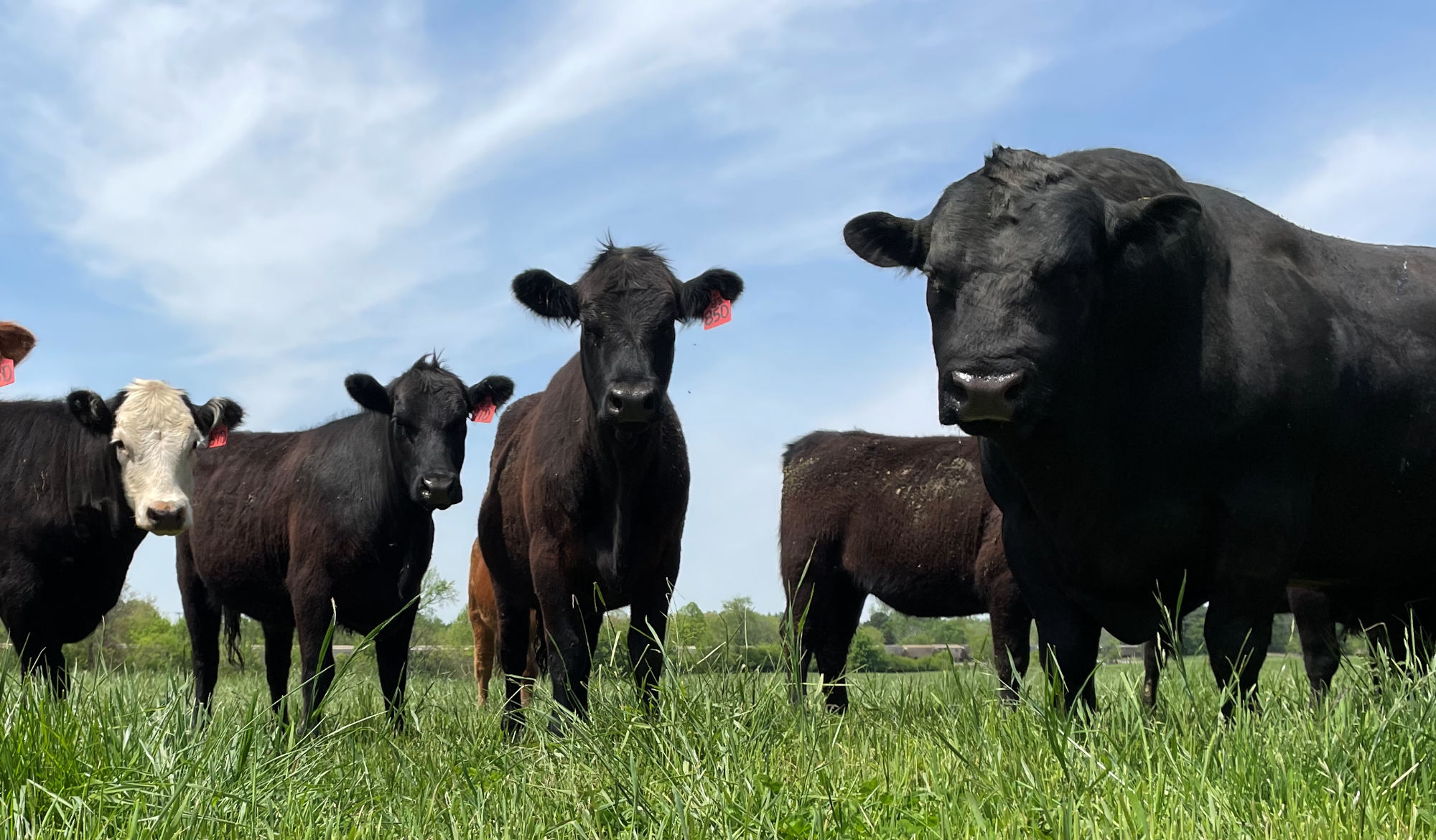

Dr. Katie Mason
Assistant Professor and Extension Beef Cattle Nutrition Specialist
Department of Animal Science
P: 865-974-8941
This month’s article is written by Cassidy Catrett, a Master of Science student under the direction of Dr. Troy Rowan. Cassidy has worked with me this semester to grow her Extension interests and combine her knowledge of bull selection with nutrition to broaden her knowledge base.
Bull selection is one of the most important decisions producers make for their cow herds, due to its effect on genetic progress of the herd. Proper nutritional management of bulls is necessary so that they can go out and perform to their best ability when the breeding season rolls around. Managing bulls has many considerations and not every bull needs to be managed in the same way. Two important things to consider are the maturity level of your bull and what your breeding season looks like.
Maturity Level: Bulls at different stages of maturity should be managed differently. Younger bulls who are still growing need to be fed so that they not only have enough energy to work, but also so that they continue to grow until they reach their mature size. With older, mature bulls, we do not have to worry about him growing, rather, ensuring that he maintains a body condition score (BCS) of 5-6 so that he remains in good flesh during the breeding season. The main challenge with managing a mature bull is that we need him to remain in good flesh without getting over-conditioned.
Breeding Seasons
- Before the breeding season, the goal is to ensure that your herd bull is in good shape to be able to cover cows and not lose too much weight. Typically, bulls lose 100-200 pounds during the breeding season, and if a bull has a BCS of less than 5, then he will most likely drop too much weight and not be able to complete the breeding season. Just as we evaluate cow BCS before the calving season, about 60-90 days before the breeding season, evaluate the body condition of your bull. If he looks a bit thin, he will need to be supplemented and put into a more confined area so that he can gain weight. If he looks a bit over-conditioned, limit the amount of grain or forages he has access to and put him in a larger area so that he can exercise to lose some condition.
- During the breeding season, bulls are on the same plane of nutrition as your cow herd and not much should be done to manage them differently.
- Once the breeding season is over, the herd bull will need to be managed so that he can gain back any weight he lost during the season and then maintained until he is ready to work again another season. This also depends on whether your bull is working during one or two breeding seasons per year. For bulls working during two seasons, this practice should be done before each season.
Overall, bull management is one of the very important practices for beef cattle producers. Proper bull management allows them to work to their full potential, supporting successful calf crops.